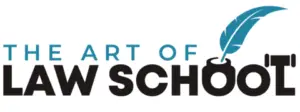Internships are an extremely important component of your law school experience. They are a chance for you to get practical, real-life knowledge of how the law works. Internships are also an opportunity for law students to make connections and expand their network.
Unfortunately, law school is also extremely taxing on individual finances and you may find yourself in a position where volunteer work just isn’t going to pay the bills. So what are the chances of you obtaining a paid law school internship?
Although there are paid law school internships available for 1Ls, they are uncommon and difficult to obtain. Opportunities for paid law school internships are far more prevalent during your 2L summer and 3L year. You can increase your chances of obtaining a paid internship by getting high grades, networking, and casting a wide net of applications.
So your opportunities for finding a paid law school internship are really a mixed bag depending on what year in law school you are, where you go to school, and your academic performance. In this article, you will learn how to increase your odds of getting a paid internship and why you don’t necessarily need a paid internship to get paid.
How to get a paid law school internship
Finding a paid law school internship has never been very easy, and due to COVID it has gotten even more difficult. Luckily there are a variety of things you can do to improve your chances of getting a paid internship. First, we should get some of the misconceptions out of the way.
There are a lot of misconceptions about what constitutes a paid law school internship. After talking with incoming 1L law students you would think that Big Law summer associate jobs were extremely plentiful and anyone with a good GPA would probably get one 1L year and certainly 2L year. These myths are distracting at best, harmful at worst, and they are widespread. The majority of my 1L class seemed to have high hopes that a 1L summer associate job was accessible and all their job worries and debt problems would soon be taken care of. Most of us realized eventually how utterly ridiculous our beliefs had been.
There are remarkably few 2L summer associate jobs available to law students and an even smaller amount available to 1Ls. The vast majority of paid law school internships are not the extravagant $3,500 a week summer associate jobs, but the $12 an hour internships.
There is absolutely nothing wrong with a $12 an hour internship, in fact if you are getting paid as a law school intern you’re ahead! I just want to knock out any notions that big paying summer associate jobs are the standard.
Networking is extremely important
As I mentioned previously, getting a paid law school internship your 2L year is far easier and more within your control than trying to get one your 1L year. When I see 1Ls obtain paid summer internships, the most common way is through networking. Yes, they typically had to have decent grades as well, but networking got their foot in the door.
One of my friends is pursuing international law so she attended several international law meet and greets. She made a connection with an international law judge and ended up working as a paid clerk for him that summer.
Stories like that are extremely common when you hear 1Ls obtain paid internships. If you are serious about obtaining a paid internship then you should be identifying networking events and attending them. Try your best to make connections with practitioners in various practice areas. Networking isn’t just good advice for establishing a solid foundation for your career but it will also help you in finding a paid internship, win-win.
Obtain high grades

If you take a single piece of advice from this article I want it to be this. Good grades are not everything to getting a paid law school internship, but bad grades are a certain way to drop you out of contention. If grades alone were enough to get you employed than employers wouldn’t waste their time interviewing candidates. But on the other side of the coin, many firms large and small have strict grade cutoffs where they will not even read your resume if you don’t meet a minimum GPA.
My advice is to perform as well in law school as possible so you can make your paid internship search significantly easier. The better you perform the better your chances will be at getting a paid job.
Apply to a variety of places
There are large-size firms, boutique firms, small firms, public interest organizations, and a variety of other legal entities that hire paid law school interns. If you need a paid job you should be casting a wide net.
Law students simply can’t afford to get too picky with firm preferences and minor differences in hourly pay. The vast majority of us don’t have the marketable skills and requisite experience to shop around for paid work.
Don’t forget about paid internships at the law school either! Most law schools offer a variety of research assistant positions and these are paid. You certainly are not going to get rich off of a research assistant job, but you will develop experience, make connections with a professor, and get paid!
Apply early
The paid summer jobs ALWAYS get snatched up quickly. Makes sense right, literally everyone wants a paid job so that is where they first apply. So how do you help your resume get past the sea of other law student applications? My suggestion is that you start applying as early as possible and perform routine checks for new listings.
If you are a 1L that means you should start applying in December AFTER you finish your first semester exams. That should give you a nice head start on other students who might be dragging their feet.
If you are a 2L you should start around the same time in December but I noticed that there isn’t nearly as significant of a rush to apply 2L year so you can afford to wait until January.
If you don’t get a paid internship you can still get paid with public interest
Don’t fret if the summer is closing in and you haven’t been able to lock down a paid internship opportunity. As I mentioned previously, many students and probably most 1Ls end up having to settle for an unpaid internship. The good news is just because your internship is unpaid does not mean you won’t receive any financial compensation!
Have you looked into whether your law school has a public interest grant program? Most law schools grant students money for interning in the public interest sector. Unfortunately, the qualifications tend to be somewhat strict. My law school required that you work 40 hours a week for 10 weeks and it did not consider my Department of Justice internship to be “public sector” even though I didn’t get paid squat.
That being said, if you obtain a public interest job and you qualify for the grant money then take advantage of it!
I hope this article has helped you in obtaining a paid legal internship, you can check out other articles on making money over the summer here.

